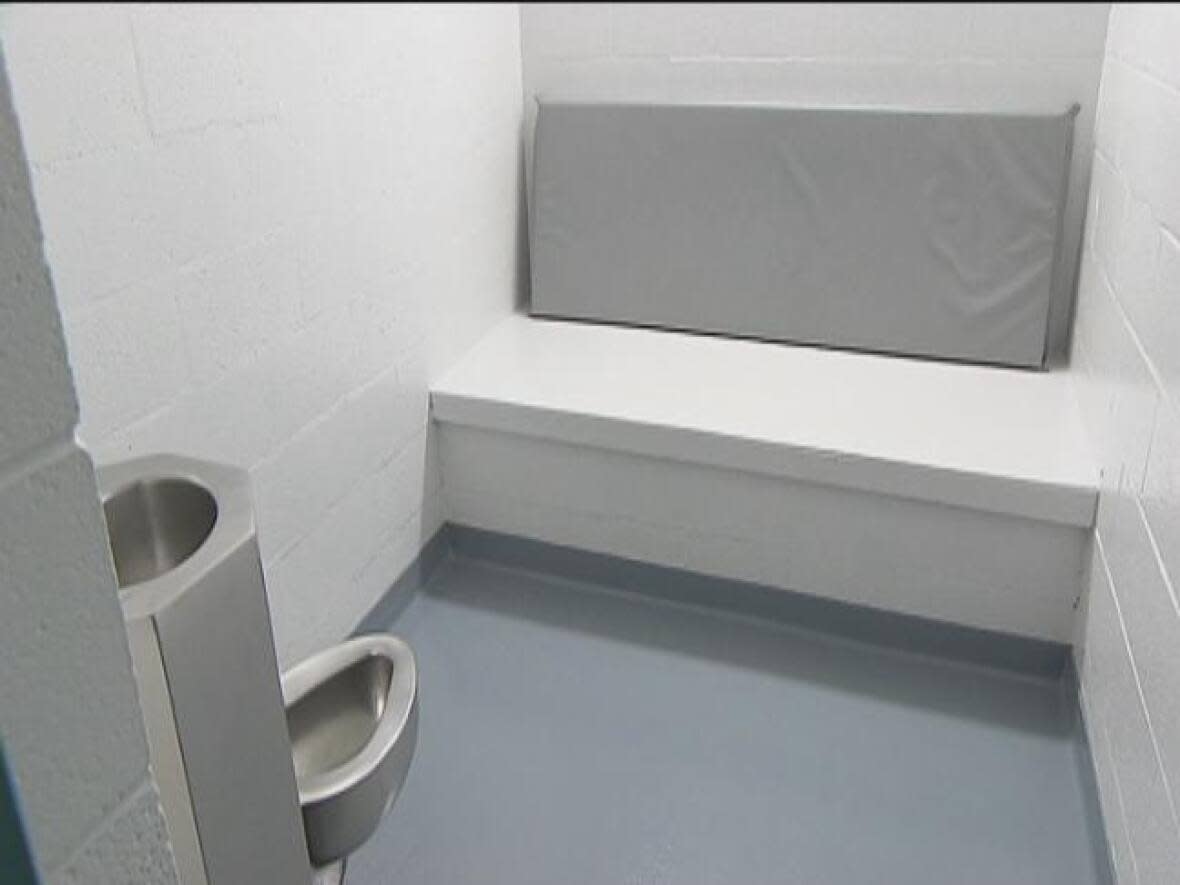Alberta judges criticize police for watching, recording detainees using toilet

Two Edmonton area women were cleared on impaired driving charges after provincial court judges found their charter rights were violated while using the toilet in police custody.
Since those rulings, Edmonton police and RCMP have changed policies.
One was a provincial court decision issued in September 2020 by judge D'arcy DePoe, involving a woman who was charged with impaired driving on March 21, 2019. CBC is not identifying her because the charges were ultimately dismissed.
After the woman rear-ended another vehicle, an officer who suspected she was impaired took her into the Edmonton Police Service West Division station for a breathalyzer.
Following the first of two breath samples, the woman asked to use the washroom. The male officer took her into a cell and was able to observe her through a window.
She later testified that she had no idea that a commissionaire was watching and recording her while she was urinating.
"There is no policy in place that would provide for a female police member to monitor a female detainee using the toilet, or that would require the video monitoring to cease while the toilet was being used," Judge DePoe said in his written decision.
"This was not done with her consent and she expected to use the toilet in privacy."
He noted that an EPS staff sergeant testified that cell cameras can be deactivated with a timer switch, for example during strip searches.
During the trial, the judge was told that Edmonton police had recently added signs to cells that say the cell is video-monitored around the clock. EPS also began providing "oversized paper towels" for detainees while they are using the toilet, but DePoe was critical of that approach.
"It was not explained how a person who requires both hands to use the toilet can also employ such a towel simultaneously," DePoe wrote. "A sample towel was shown to the court. It is difficult to understand how this could provide any real measure of privacy."
The judge found the woman's charter right to privacy was violated when police recorded her using the toilet. He would not allow the results of the breath test to be admitted into evidence. After that ruling, the Crown chose to call no evidence and the charges were dismissed.
The Crown appealed the decision, but a Court of Queen's Bench justice dismissed the appeal.
In his written decision, Justice George Fraser noted that other jurisdictions have come up with solutions to the toilet privacy situation.
"Cameras could be switched off when it is known that someone is using the toilet," Fraser wrote. "That portion of the cell video could be pixelated or blurred so that the video shows a very generalized picture of what is happening, but does not reveal any details."
EPS spokesperson Cheryl Sheppard told CBC News that Edmonton police introduced pixelated video in January 2022 and that all division stations will be outfitted by September.
"This provides detainees with enhanced privacy, while also maintaining EPS' ability to monitor cells for detainee safety and prevent evidence destruction," Sheppard wrote in an email.
RCMP arrest
An earlier case involved the arrest of a woman in Fort Saskatchewan by RCMP in May 2018 for suspected impaired driving.
The woman was taken to the RCMP detachment and a female officer did a pat-down search. But when the woman asked to use the washroom, the arresting male officer took her to a prisoner cell and kept a "constant" watch over her while she was urinating, Edmonton provincial court judge Robert Shaigec wrote in his November 2018 decision.
Shaigec determined the woman's charter rights were violated and that the monitoring "constituted a significant invasion of her privacy and impacted upon her personal dignity."
Shaigec also expressed concern in his decision that RCMP conduct fell far below the court-established standard when it comes to monitoring detainees of the opposite gender. He noted the female officer who conducted the pat-down search was still at the station and that other washroom facilities were available.
Shaigec found that admitting the results of the woman's breath tests would bring the administration of justice into disrepute.
The woman was found not guilty.
An RCMP spokesperson said that as a result of the Shaigec decision, their procedures were updated in February 2020. Cpl. Deanna Fontaine told CBC News that detainees are offered a privacy cover if they use the toilet as long as there are no suicide or safety concerns or worries about the preservation of evidence.

Edmonton criminal defence lawyer Kate Engel said she is not surprised that it took police so long to change their policies.
"This is an issue that occurs in cells, behind the scenes," Engel said. "It's not something that is easily known to the public. So I'm not surprised it took many decisions from the courts for there to be changes in policy to address the issue."
Engel applauded Edmonton police for adopting the use of pixelated video. She said she's had clients who have been embarrassed and ashamed when they find out they were recorded using the toilet while in police custody.
"It's important that we make sure that everybody's rights are upheld even if they're being arrested, because it could always be you in that situation and you would want to make sure that your rights to privacy were respected as well," Engel said.


